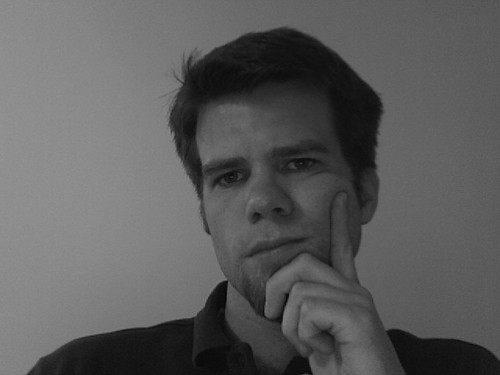An Emergent Manifesto of Hope (Part 3)
I am definitely enjoying this book. It is providing lots of food for thought. There have been some chapters that I really agree with and there have been others that I disagreed with (or maybe just didn't get it).
One of my favorite chapters so far is Adam Walker Cleaveland's "Presbymergent: The Story of One Mainliner's Quest to Be a Loyal Radical." From my perspective as a young United Methodist pastor, Walker Cleaveland does a great job of providing insight into what many young mainline pastor's are struggling with. He is honest and vulnerable in his essay, and his analysis of the strengths and struggles of staying grounded in a mainline tradition is insightful.
He writes: Being part of a denomination that has significant historical roots gives one a sense of belonging to something bigger than oneself. When people realize their faith in God is much more than just a personal, individual decision, that they belong to a great "cloud of witnesses" of those who have gone before them, their vision of the church is both deepened and enlarged (123).
In my own faith journey, it was learning about John Wesley's life and theology that really began to help me set down deeper roots in the United Methodist Church. It was in looking to the past and to our Wesleyan heritage that I began to find that there was a place I could stand with conviction and hope.
One of the most valuable contributions of "Presbymergent" is simply that Adam Walker Cleaveland is willing to be vulnerable and honest about his journey towards ordination in the PC (USA) with the excitement and ambiguity that he feels towards the church he is currently a part of. In conversations that I have had with young pastors moving towards ordination, there seems to be a fear of being completely honest about who I am, or "they" might not let me in. I appreciate what I see as Walker Cleaveland's faith in God that enables him to not focus too much on the institutional boogey-man that is trying to keep him out of the denominational club. My experience in seminary, getting to know many young pastors, definitely corresponds with his assertion that: Future pastors are yearning to be given permission to be loyal radicals within their respective denominations (126).
I am surpirsed at how often the importance of small group accountability has come up in this collection of essays. It may be it seemed more frequent than it was, given my personal interest in the subject, but it does seem like it has come up in several different essays.
Sally Morgenthaler's essay "Leadership in a Flattened World: Grassroots Culture and the Demise of the CEO Model" is one of the essays that has made me think the most after having read it. I have continued to chew on her idea of the importance of collective intelligence, and the way that eBay, Google, Amazon, Starbucks, Netflix, Apple, and others have understood this and applied it to their way of doing business. What stuck with me was her argument that: Western Christendom seems oblivious to its implications. But it is the entrepreneurial church (congregations of roughly one thousand and above) that seems particularly clueless about the shift from the passive to the reflexive. And this, despite all its posturing about cultural relevance (180).
The main idea from this quote is probably the main thing from this book that I have read so far that I would love to hear a broad group of Christians discuss. I found myself wondering how would Craig Groeschel at Lifechurch and Adam Hamilton at the United Methodist Church of the Resurrection respond to this article, among others?
The essays that didn't really connect with me were Barry Taylor's "Converting Christianity: The End and Beginning of Faith," Samir Selmanovic's "The Sweet Problem of Inclusiveness: Finding Out God in the Other," and Dwight J. Friesen's "Orthoparadoxy: Emerging Hope for Embracing Difference." Selmanovic seems to want to coronate everyone an anonymous Christian, which seems ironic. Friesen lost me with this statement: Here is my working maxim of a theology of orthoparadoxy: the more irreconcilable various theological positions appear to be, the closer we are to experiencing truth (209). Off the top of my head: God is dead. Or, God is alive. I guess, that statement just seems to me to be trying a little too hard to say something new or profound.
But, I have to admit that some of these essays I read more carefully than others... so I may not have given them as fair of a hearing as they deserved. Ultimately, in a book with this wide of a scope, it would be amazing if one reader really connected with every chapter. (In fact, I don't have the impression that this was ever even a goal that Jones and Pagitt had for this project.)
Thoughts? Reactions? Disagreements?

1 comment:
Hey Kevin, I finally bought this book at a Barnes and Noble down in Corpus Christi. Morgenthaler's essay has been one of the most thought provoking for me too. I think it's my favorite so far.
Leadership in a flattened world will be one of the great challenges for those of us who are "younger" clergy.
Post a Comment